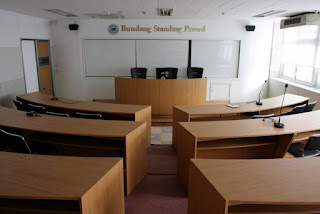On Friday October 23, the members of the Bundang High School Debate Club took part in their first debate of the term. The students actively debated if students should be permitted to use mp3 players in school. The proposition side stated that students should be permitted to use mp3 players in school, while the opposition side argued that they should remain banned. Both sides argued strong points for their case, including those listed below.
Proposition Arguments:
1. Mp3 players relieve stress.
2. Mp3 players help students to concentrate during self-study time.
3. Mp3 players improve the quality of life for students due to rights.
4. Mp3 players can be used for academic purposes.
Opposition arguments:
1. Mp3 players are a distraction.
2. Mp3 players are too valuable to bring to school.
3. Mp3 players are bad for your ears.
4. Mp3 players will be used inappropriately.
For the second class meeting, students choose a light hearted topic and debated the merits of Peppero Day.
Propositon arguments:
1. Giving peppero on Peppero Day allows people to express their feelings when other times, they might be too shy.
2. Giving the gift of peppero can help people extend friendships and improve relationships.
3. The increased sale of peppero is good for the GNI.
Opposition arguments:
1. It is unfair and stressful for the students who do not receive peppero on Peppero Day.
2. Peppero is not healthy.
3. The large sale of peppero on Peppero Day is a waste of resources, produces too much trash, and is bad for the environment.









